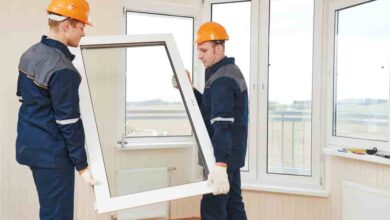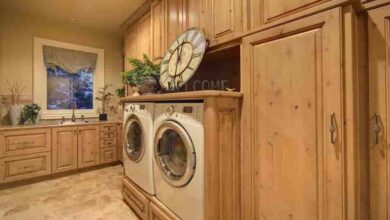How Much to Replace HVAC System?
Curious about the cost of replacing your HVAC system? It’s important to know that, in addition to the influencing factors and estimated charges, there are government programs for furnace replacement that can help guide your budgeting for this significant investment. Whether your current system is facing inefficiency or frequent breakdowns, understanding the financials of HVAC replacement is crucial. These government initiatives often offer rebates or incentives for homeowners looking to upgrade to more energy-efficient systems. Let’s dive into the details to see how these programs can potentially reduce your out-of-pocket costs.
Reasons for Replacing the HVAC System
Replacing your HVAC system can save you from the frustration of constant breakdowns and the discomfort of a poorly functioning system. An old and outdated system cannot keep up with your heating and cooling needs, resulting in inconsistent temperatures and higher energy bills.
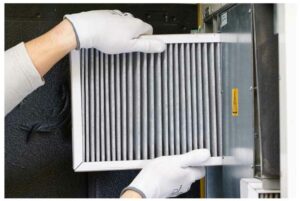
You can enjoy improved energy efficiency, better indoor air quality, and a more comfortable living environment by replacing your HVAC system. Newer HVAC systems come with advanced features such as programmable thermostats and intelligent technology, allowing you to control your home’s climate better and save money on energy bills.
Investing in a new HVAC system seems like a significant upfront expense, but it can pay off in the long run, providing cost savings and the peace of mind of knowing you have a reliable and efficient system.
Read More:- How Much is a New HVAC System?
Factors Affecting the Cost of Replacing HVAC System
When it comes to replacing your HVAC system, several factors can affect the cost.
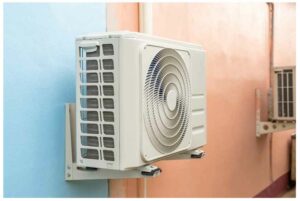
One key point to consider is the size of the system, as larger systems are commonly more expensive.
The type of system you choose, such as a central air conditioner or a heat pump, can also impact the cost.
Additionally, the HVAC system’s age, location, and brand can all affect the overall cost of replacement.
Size of HVAC System
The size of an HVAC system directly impacts its efficiency and performance. When it comes time to upgrade, investing in a new HVAC system requires careful consideration of the unit’s size.
A system that is too small for your home will struggle to keep up with the heating or cooling demands, resulting in increased energy consumption and discomfort. Conversely, a too large system will cycle on and off frequently, leading to unnecessary wear and tear and higher energy bills.
To determine the right size for your new HVAC system, it’s essential that a professional performs a load calculation. This assessment takes into account factors such as the size of your home, insulation levels, and the number of windows, ensuring that the system is perfectly tailored to your space.
By choosing the correct size for your new HVAC system, you can ensure optimal efficiency and performance, and ultimately, enjoy the cost savings that come with a properly sized unit.
Type of HVAC System
To ensure your home is comfortable and your energy bills are low, have a professional determine the right size and type of HVAC system.
The type of HVAC system you choose will depend on factors such as the climate, the size of your home, and your preferences.
Several types of HVAC systems are available, including central air conditioning, heat pumps, and ductless mini-split systems.
Central air conditioning systems are the most common and are suitable for larger homes with ductwork already in place.
Heat pumps are popular for moderate climates as they provide heating and cooling capabilities.
Ductless mini-split systems are an excellent option for homes without existing ductwork or those needing more control over individual room temperatures.
It’s essential to consult with a professional HVAC technician who can assess your specific needs and recommend the best type of system for your home.
Age of HVAC System
If you haven’t considered it, you should consider how long your HVAC system has run.
The age of your HVAC system is essential when determining whether it needs to be replaced. HVAC systems have a lifespan of about 15 to 20 years.
However, this can vary depending on factors such as how well the system has been maintained and the quality of the original installation. If your HVAC system is nearing or has exceeded this timeframe, it is time to consider a replacement.
Older systems are less energy-efficient and require more frequent repairs, which can cost you more in the long run. Additionally, newer HVAC systems come with advanced features and technologies that can improve comfort and energy efficiency in your home.
Location of HVAC System
Considering the age of your HVAC system, it’s worth pondering the significance of its location in your home.
The location of your HVAC system can significantly impact its efficiency and overall performance.
If your system is in a cramped or poorly ventilated area, it has to work harder to cool or heat your home, leading to increased energy consumption and higher utility bills.
If your HVAC system is placed in a well-ventilated and easily accessible area, it will circulate air more efficiently, resulting in better temperature control and lower energy costs.
Additionally, the location of your HVAC system can affect its lifespan.
If exposed to excessive moisture or high temperatures, it experiences premature wear and tear, reducing its longevity.
Therefore, it’s essential to consider the location of your HVAC system when assessing its overall condition and determining whether it needs to be replaced.
Brand of HVAC System
When choosing an HVAC system, you should consider the brand. Different brands have different levels of quality, reliability, and efficiency.
Well-known brands in the HVAC industry include Carrier, Trane, Lennox, and Rheem. These brands produce high-quality, durable HVAC systems.
Choosing a brand with a good track record and positive customer reviews is essential. Researching the different brands and comparing their features and warranties can help you make an informed decision.
Remember that investing in a reputable brand costs more upfront but can save you money in the long run by providing better performance and durability.
Quality of Installation
To ensure you get the most out of your HVAC system, prioritize the quality of installation. A poorly installed system can lead to numerous issues, including reduced efficiency, increased energy consumption, and frequent breakdowns. That’s why some providers offer promotions like Get a Free HVAC System to showcase their confidence in installation and equipment quality.
By hiring a professional and experienced HVAC contractor, you can guarantee that your system will be installed correctly and by industry standards. A properly installed HVAC system will provide optimal heating and cooling performance and enhance your home’s overall comfort and air quality.
When you come across an opportunity to Get a Free HVAC System, it’s essential to consider the credibility of the offer and the reputation of the contractor. A high-quality installation can prolong the lifespan of your HVAC system, saving you money on costly repairs and replacements in the long run.
So, don’t overlook the importance of installation quality when considering replacing your HVAC system. Researching the best contractors and keeping an eye out for unbeatable deals can lead to significant long-term benefits for your home comfort.
Cost Estimates for Replacing HVAC System
Consider an infrequent key point if you’re wondering how much it’ll cost to replace your HVAC system.
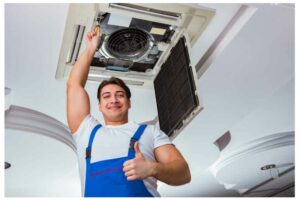
On average, the cost of replacing an HVAC system can range from $3,000 to $10,000, depending on factors such as the size of your home and the type of system you choose.
It’s essential to remember that different types of HVAC systems, such as central air conditioning or heat pumps, can have varying cost estimates.
Read More:- Which HVAC Systems Are Best?
Average Cost of Replacing HVAC System
The average cost of replacing an HVAC system can be substantial, but the benefits of a comfortable and efficient home make it worth every penny.
On average, homeowners can expect to spend around $5,000 to $10,000 for a complete HVAC system replacement. However, the actual cost can vary depending on various factors, such as the size of the home, the type of system being installed, and any additional features or upgrades.
While this seems like a significant investment, a new HVAC system can significantly improve energy efficiency, reduce utility bills, and provide a more comfortable living environment. More recent systems usually come with warranties, saving you money on potential repairs in the future.
When considering the cost, it is essential to weigh the long-term benefits and potential savings that a new HVAC system can bring to your home.
Cost Estimates for Different Types of HVAC Systems
Installing a new HVAC system can be expensive, but the range of cost estimates for different scenarios will inspire you with visions of a comfortable and energy-efficient home.
The cost of replacing an HVAC system can vary depending on the type of system you choose.
The average cost of a central air conditioning system, including installation, is between $ 3,000 and $ 7,500.
If you opt for a ductless mini-split system, the cost can range from $2,000 to $7,000.
Heat pump systems, which provide heating and cooling, can range from $5,000 to $15,000.
Geothermal systems, which are more expensive but highly energy-efficient, can cost between $ 10,000 and $30,000.
When choosing the right HVAC system for your needs, consider factors such as the size of your home, the climate you live in, and your energy efficiency goals.
Conclusion
In conclusion, replacing an HVAC system due to inefficiency or breakdowns is an expensive yet vital investment. Costs, ranging from $5,000 to $10,000+, are influenced by home size, system type, and labor. It’s crucial to compare quotes for the best deal. Despite the upfront expense, the improved comfort, lower energy bills, and better air quality offer long-term benefits, making replacement an intelligent financial decision in the long run.


